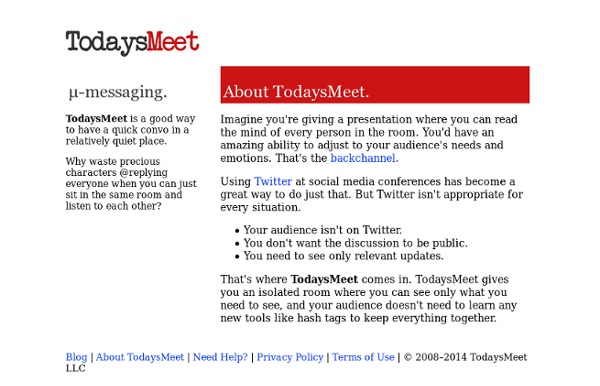



Directed Reading - Thinking Activity Description Directed Reading-Thinking Activity, or DR-TA, is a technique developed by Russell Stauffer (1969). DR-TA encourages students to make predictions while they are reading. After reading segments of a text, students stop, confirm or revise previous predictions, and make new predictions about what they will read next. Purpose DR-TA serves several purposes: Elicits students’ prior knowledge of the topic of the text. How to Use DR-TA Choose a text. Stauffer, R. Teachers and Transformational Learning /ICT An International Look | SITE Blog Teachers and Transformational Learning /ICT International Reflections Some say, in thinking about teaching and learning “A good teacher is like a candle – it consumes itself to light the way for others.”lately, it seems that most people want to blame the teacher for the problems in our countries and burn out those currenly in the profession. I think many conversations about teaching and learning have put out the desire of many to be teachers, and have saddened those who effort to make change in places where it is very difficult. The problem is that the world and what we know about learning has changed. Many education leaders point their fingers at the teacher as the problem . In the age of ICT, learning technologies are undergoing an accelerating transformation and many teachers have little support of any kind for the kind of transformational changes to teaching and learning. How do our respective national goals affect teaching and learning? Goal 1: Eradicate extreme poverty and hunger
DRTA | How To Teach Reading: 3 Strategies What is Directed Reading/Thinking Activity (DRTA)? Directed Reading/Thinking Activity is a teaching strategy that allows the guides the students through the process of making predictions based on the information that the text has provided them. The teacher asks questions about the text, the students answer them, and then develop predictions about the text. As the students move through the text, their predictions are changed and modified according to the new information that is provided from the text. Why is DRTA Important? Directed Reading/Thinking Activity is an important strategy because it actively teaches students the skill of comprehension. What materials do I need? A short text that none of the students are familiar with, typed up on an over head project or A class set of the same text How do I pick the appropriate text? When searching for an appropriate text, consider the following: Have any of my students read this text before? 2. What are the benefits to DRTA? Video Like this:
Knowledge Media Design Institute | Digital media research and education institute at the University of Toronto. Beautiful web-based timeline software ijCSCL :: International Journal of Computer-Supported Collaborative Learning Austral Ed Recommended Lists Africa Art Asia Aussie Bites, Nibbles, Chomps, Solos and Mates Australian Animals Australian Books: Presentation at 2014 ECIS Librarians' Conference Australian Children's Fantasy Australian Children's Fiction Australian Children's Nonfiction Australian Children's Picture Books Australian Fiction Series popular with young readers Australian History Curriculum Fiction Australian History Curriculum Non-Fiction Australian Indigenous Peoples Autobiography and Biography Big Books Bilingual Picture Books British Children's Fiction British Children's Picture Books Early Childhood ESL and Low Literacy Graphic Novels Great Books to Read Aloud Immigration International Children's Books Middle East and North Africa Music New Zealand Performance Sophisticated Picture Books Strong Australian Theme Wordless Picture Books Good Reads for Various Grade Levels Good Reads for Grade 2 & 3 Good Reads for Grade 8 & 9 Book Awards Australian CBC Book of the Year Awards — 2015 Winners, Honour Books and Shortlist Carnegie Award Winners 2012
EduCon 2.3 — January 28–30, 2011 — Philadelphia Plutarch • Sayings of Spartans — 208B‑236E (Vol. III) Plutarch, Moralia 1 When someone expressed surprise to Agasicles, king of the Spartans, because, although he was very fond of reading and lectures, yet he would not admit to his presence Philophanes, a learned man, he said, "I want to be a pupil of those whose son I should like to be as well." 2 When someone else remarked that he while king had been made hostage with those in the prime of life, and not their children or their women, he said, "That is but just, for it is good that we ourselves should bear the consequences of our own mistakes." 3 When he wished to send for some dogs from home, and some said, "There is no such export permitted from there," he said, c"Nor was there of men before this; but now it has been done!" 7 When a lecturer said, "Speech is the most important thing of all," he retorted, "Then if you are silent, you are of no worth at all!" p303 Antiochus Archidamidas
Lernanta | Introduction to the field of Computer Supported Collaborative Learning | Full Description Please read the below, as well as the different "Tasks" (left sidebar towards the bottom), and then if you are interested in being a core member, click on apply to "sign up", if you want to follow along, you can "Follow" (button on left sidebar) the course. Course will start on April 25th, 2011. organized by Stian Haklev and Monica Resendes at P2PU Target group Graduate students in educational technology interested in the field of CSCL - many of whom do not have access to appropriate courses at their own institutions People active in the open education movement, involved with MOOCs etc, who are interested in how this academic field can benefit their projects Anyone else - teachers? Purpose Through an eight-week course, provide an overview of the field of CSCL, including some consideration of how it is situated within the broader fields of educational technology, and education, as well as its history. There will also be a few collaboration and contribution (C+C) badges.